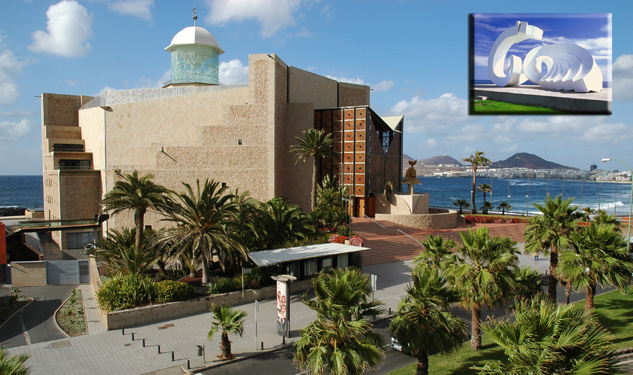
- Industry
The HFPA Gives Las Palmas de Gran Canaria International Film Festival A Token Of Friendship
As happens every March, there is no missing the fact that the film festival has come to town – Las Palmas, that is the capital city of the Canary Islands. The billboards are ubiquitous and the local newspapers follow every screening in the 10-day event with the same coverage that any Hollywood movie would get. Which is a lot if you consider that this island festival has nowhere near the resources of other major regional fests like San Sebastian or Casablanca, just to mention two of the biggest ones. In a place where most of the films that are regularly shown in the cinemas come from Hollywood, the festival offers a brief window into a different world of experimentation. Here, visuals and mood are more important than plot, and even if films like the Argentinian made Ragazzi, directed by Raúl Perrone, about the last day of Pier Paolo Pasolini, shot in a suburb of Buenos Aires with non professional actors, superimposed images and distorted sound, can be a challenge for most viewers, it’s certainly a different approach to what cinema can be.
But the festival has much more to offer, from workshops with filmmakers to sections dedicated to local productions. In fact, one of the best films shown in Las Palmas this year was directed by local director Elio Quiroga, an astonishing documentary about the legendary French comedian and silent-era pioneer Max Linder, The Mystery of the King of Kinema, which was shot all over the world but funded in the Canary Islands, starring his only daughter, Maud Linder, who is now 90. Even if politically and culturally Las Palmas belongs to Spain, the city, which with almost 400,000 inhabitants is the 9th largest of the country, geographically is located in Africa, just across the sea from Al-Aaiún, the former capital of the Spanish Sahara (today Western Sahara which is controlled by Morocco). But that proximity belies the fact that when you stroll the narrow streets of the older parts of town, Vegueta and Triana, you are unmistakably in Spain. Still, the people here speak Castilian with a peculiar accent, one that’s closer to Venezuela and the Spanish speaking Caribbean than to the one you can hear in Spain proper. That’s perhaps because the Canary Islands always had a strong connection with Latin America, and after the Spanish founded Las Palmas in 1478 they used it, along with Tenerife, as a mandatory stopover for their ships on their way to Cuba and Mexico. Even Christopher Columbus spent some days in Las Palmas before his first trip to what he thought was India in 1492, and many “Canarios”, as the people from here are known, participated in the conquest of the new continent and helped settle it.
A delegation from the HFPA visited the festival, which has struggled in the past, and even stopped happening for one year, and brought along a plaque as a token of friendship. During a small event at the CICCA, the cultural center of Caja de Canarias, the director of Las Palmas International Luis Miranda, received it. In a brief but enthusiastic speech, Miranda said that the plaque would encourage the festival to fulfill its mission, knowing that its efforts are appreciated in other parts of the world. The visit by the HFPA coincided with the presence in the city of Javier Cámara, one of the biggest stars of Spanish cinema, who was there to be part of the international jury. Cámara, who not long ago was interviewed by the HFPA in Los Angeles for his participation in Pedro Almodovar’s I’m So Excited!, is the star of the largest Spanish hit of this year, Perdiendo el norte and also was the lead in Spain’s last entry to the Oscars, Living is Easy with your Eyes Closed.
Gabriel Lerman

